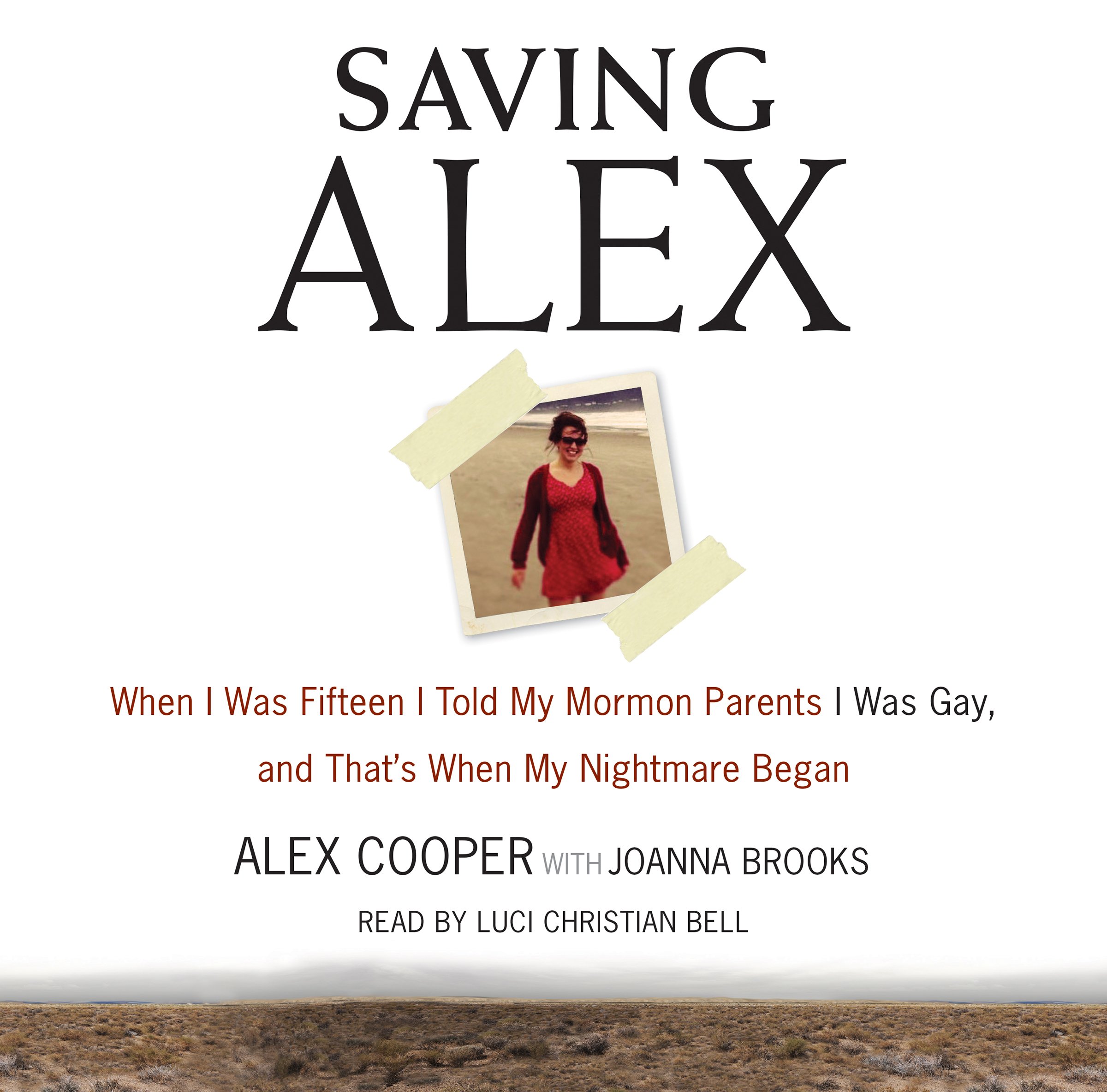I read this book in one sitting last night and found the book to be an inspirational memoir. This account will hopefully give hope to people searching for ways to navigate the impossible choices imposed on LGBTQI people by LDS church doctrine and culture. Reading what happened to Alex made me glad I came out in my 30s and that my family couldn't try to "cure" me. There is no need to fix what isn't broken - which is what Alex ultimately affirms in herself. She is attracted to women and there is nothing wrong with that, despite what her culture, religion and family might say.
I'm glad Alex was able to escape the abusive situation her parents put her in. I do understand where her parents were coming from. This understanding is a byproduct of trying to make sense of my own coming out/excommunication/family dynamics. Her parents were genuinely scared - not just for her immediate welfare, but for her immortal soul and eternal welfare. Not that their reaction was in any way justified (especially not fully vetting the people they were entrusting their child to) - just understandable. Kicking their child out of the home, however, is something I will never understand - but fear is powerful. So many problems in human relationships, from abuse to war, ultimately stem from fear.
LDS families who must come to terms with these issues can either choose to love beyond boundaries, as Alex's family does to some extent by the end, or let their love wither, which it does for most of the book. This memoir, the recent decision by LDS leaders to ban membership of children of married same-sex couples, to excommunicate married same-sex couples, and the continued rhetoric from the pulpit illuminate the power and pain of the impossible choices that LGBTQI Mormons face. The impossible choice boils down to this: 1) choose celibacy and stay Mormon - which means never being able to enjoy the emotional and sexual intimacy that is vital to being human, and therefore, as I see it, never fully express who you really are; or 2) leave the LDS Church, which is in some cases (as was mine) the only culture you have ever known. I know from experience having grown up in Utah, having served a mission, and having married a man in the temple, that choosing to leave the LDS Church means entering into terra incognita - your lose your former place in the world. Things that were so clear become blurry overnight. You also lose most of your friends and your support system. I lost nearly all my LDS friends when I was excommunicated.
This book also shows how vital support can be. Support came from Alex's LDS friend who never stopped looking for her, the woman who let Alex know that not all Mormons see lesbianism as something to be cured, the teacher who stood up for her, her lawyer, the bus driver that let her ride for free that fateful morning, and her gay friends at school. This support helped Alex survive. People within and outside of LDS culture can make a choice - to offer support or to discriminate against. I hope this book will help more people choose to support LGBTQI people.
My heart aches for people who are currently facing the impossible choice imposed by LDS doctrine. I especially fear for the lives to kids who feel their only option is to make a third and final choice - to kill themselves rather than make the impossible choice of celibacy vs. leaving their religion and culture. Alex tried to kill herself - seeing it as her only means of escape. I'm glad she survived to write this book, to find her strength, and to share that strength with others. I genuinely believe that this book may give people, especially those making difficult choices, the hope that there is life beyond the LDS church, where to look for support, and also the understanding that it is possible to be homosexual and to be genuinely happy - as Alex is now.
It would be nice if the choices were less tough - less heart-rending - and somehow softer. But, as integral as the idea of heterosexual eternal marriage is to LDS doctrine, I don't think the official position regarding queer LDS people will ever change beyond essentially saying "you didn't choose to be this way (which is a huge shift in itself), AND you must choose celibacy to stay one of us." LDS doctrine sees homosexuality as a cross to bear, not as a legitimate way to be in the world. I was excommunicated and don't ever want to return to the fold. I've been happily partnered to my wife for nearly 17 years (who was Mormon too when we met at church), and legally married for nearly 2. I personally cannot imagine putting myself back into the LDS box. Some might choose to stay in the LDS church, which is fine for them and I wish them the best. but for those, like Alex, who choose to live openly homosexual lives, this book offers proof that it does "get better."
The memoir is also politically important because it paved the way for better rights for LGBTQI teenagers in Utah. I found the account of the politics of the juvenile system and the resistance to allowing Alex to choose her own representation fascinating. I find her bravery inspiring. I hope that other young people reading this book will realize that if they, like Alex, learn to stand firm like a tree they can resist the storms imposed by the LDS culture and doctrine. Thank you Alex for sharing your story with all of us. Here's hoping people take it to heart.

Saving Alex: When I Was Fifteen I Told My Mormon Parents I Was Gay, and That's When My Nightmare Began
4.5 | 998 ratings
Price: 22.04
Last update: 07-01-2024